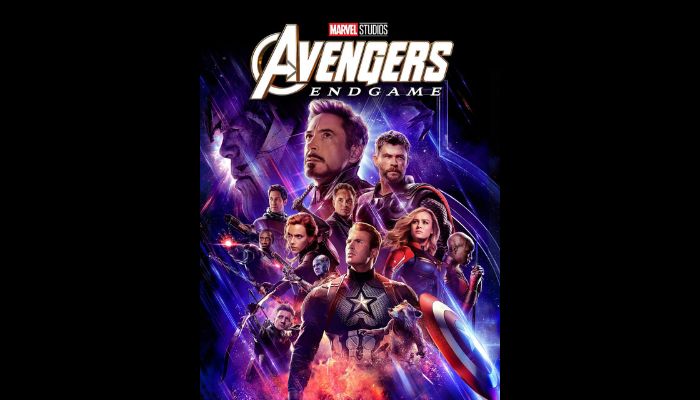Who wouldn’t enjoy a trip to the cinema? Watching a movie in a theater offers a unique and immersive experience distinct from home viewing. The massive screen and surround sound create a captivating atmosphere, engulfing audiences in a different world where they forget about their real life for a few hours.
Only true movie buffs understand that certain films are best appreciated in the theatrical setting only. However, with hundreds of movies released each month, it’s natural to wonder ‘how long a movie stays in theaters.’
We’ll help you find out. truly rejuvenating to see the rush outside cinema halls after a prolonged dry spell due to the Covid-19 pandemic. While streaming platforms sustained the film industry, many people yearned for the theatrical experience, where they could relish the collective energy of fellow moviegoers, amplifying the enjoyment multiple times over.
As these platforms continue to churn out an abundance of content and producers and favor them over traditional cinema releases, movies are no longer enjoying the same extended theatrical runs as they did in the past.
How Long Does A Movie Stay In Theaters?
Generally, a newly released movie stays in theaters for about four weeks, but no fixed rule governs this duration. Several factors influence how long a movie runs in a theater. While some movies have achieved historic runs, others may struggle to last only 1-2 weeks. The key determinant for a movie’s theatrical run is its popularity and the demand from the audience.

Major blockbuster films with widespread appeal and exceptional box office performance may stay in theaters for several months, especially if there is limited competition and strong audience demand.
On the other hand, smaller independent films or movies that underperformed at the box office might have shorter theatrical runs, sometimes lasting only a few weeks.

It’s worth noting that with the increasing popularity of digital streaming platforms and the home entertainment market, some movies have started to have shorter theatrical runs compared to the past.
Now, producers want to make them available for streaming platforms, trying to reach a broader audience who, for some reason, don’t have the luxury of visiting the cinema every weekend or so.

What Factors Decide How Long Does A Movie Stay In Theaters?
It’s a common assumption that theaters will continue screening a movie as long as it remains profitable for producers and owners. It’s simple dollars and cents! However, additional factors determine the duration of a movie’s theater screening. Let’s have a look:
1. Popularity:
Movies with high levels of popularity before their release tend to have longer staying power in theaters due to heightened anticipation and public interest. This popularity can be attributed to various factors, such as the film being a sequel featuring a well-known director or a highly popular cast.
Sequels, in particular, generate widespread attention and excitement before their release as fans eagerly anticipate the continuation of a beloved story. Additionally, movies with renowned directors or popular actors generate significant pre-release buzz, leading to greater interest and anticipation among the audience.
Producers strategically reveal enough details during the movie’s production to fuel curiosity and anticipation. This careful marketing ensures that when the movie finally hits theaters, it creates a frenzy of excitement and draws large audiences.
For example, a recent announcement revealed that a sequel to Joaquin Phoenix’s Joker is in the works. Given the massive commercial and critical success of the first film, it is expected that Joker 2 will cause a stir at the box office and enjoy an extended run in theaters.

2. Critic’s Rating:
Positive reviews from critics can significantly influence a movie’s longevity in theaters. These reviews provide an impartial assessment of the film, evaluating various aspects such as storyline, screenplay, background music, and more.
When a movie receives favorable critical acclaim, it often sparks word-of-mouth recommendations and sustains audience interest over time.

Iconic films like The Shawshank Redemption and The Godfather are examples of movies that initially had moderate box office success but eventually became timeless classics due to the combination of critical acclaim and positive word-of-mouth.
As public demand grew, hundreds of theaters were compelled to continue screening these films for weeks after their initial release.

Critics play a crucial role in shaping audience perception and influencing the success of a movie. Positive reviews encourage viewers to watch the film and contribute to its sustained presence in theaters as more and more people seek out the acclaimed cinematic experience.
3. Box Office Collection:
The movie’s hype often plays a crucial role in achieving significant box office numbers, making it a natural choice for theaters to extend its run. Additionally, impressive box office earnings generate curiosity among viewers, prompting them to wonder what makes the movie so successful.
Conversely, if a movie underperforms in the market, theater owners may decide not to continue screening it as scheduled to avoid potential financial losses.

For instance, in 1982, E.T. the Extra-Terrestrial dominated the charts for an astounding 16 consecutive weeks, becoming one of the longest-running movies in the history of the American Film industry.
In certain regions, the movie continued to be shown in theaters for up to 40 weeks purely due to its revenue-generating capabilities.

4. Audience Reception:
Besides the ratings from critics, word of mouth significantly influences a movie’s success. Many of us trust our friends’ recommendations more than so-called movie critics who assess films on various scales.
While their critiques might be accurate, some of us want to enjoy a two-hour movie without delving into the intricacies of the plot, science, or physics behind the action scenes. Audience response, therefore, plays a vital role.

Within days of a movie’s release, people share their opinions on online platforms and movie rating sites like Rotten Tomatoes and Google Ratings. Naturally, a film with more positive reviews will attract a larger audience and likely stay longer in theaters.
A prime example is the mind-bending movie Inception, released in 2010, which wasn’t heavily promoted but garnered overwhelmingly positive responses from audiences worldwide, leading to an extended run in cinemas.

5. Genre And Rating:
The first question we ask whenever someone suggests a movie is – Should we watch it in the theater or at home? The choice frequently hinges on the movie’s genre.
How often we’ve heard from one of our friends – “You have to watch it in the theater.” Films featuring impressive visual effects, such as Action, Superhero, and Sci-fi genres, are best experienced on the big screen with immersive sound systems, a sensation difficult to replicate at home.
Conversely, movies with darker themes, romantic comedies, and period dramas can be equally enjoyable from the comfort of home.

As a result, big-budget movies with superhero or sci-fi themes tend to have longer theatrical runs compared to slower-paced and serene films.
While the cinematic spectacle of action-packed blockbusters keeps audiences engaged for extended periods, the emotional depth of slower films resonates with viewers and critics, earning them recognition and accolades.
6. Movie Length:
The duration of a film significantly influences its theatrical run. While multiplexes are less affected, theaters with a single auditorium often prioritize shorter movies to accommodate more daily screenings.
Even in multiplexes, audiences prefer two-hour movies over three-hour ones unless the film is highly anticipated or exceptionally popular. As your friend might say, “But I don’t want to sit there for three hours!”

Blockbusters like Titanic or action-packed sagas like Avengers can enjoy multiple three-hour screenings in a day due to their immense popularity.
In contrast, if a three-hour movie does not generate significant revenue, it becomes more profitable for the theater to allocate its time to four 90-minute projections of shorter films.
It’s pure economics, maximizing screen utilization and attracting a broader range of audiences with varied film options.

7. New Releases And Competition:
The performance of movies in theaters can be significantly influenced by the release schedule of other films and the level of competition they face. A movie’s theatrical run may be affected if it competes with highly anticipated releases.
For instance, international films in the USA often have a limited screening window due to strong competition from powerful local Hollywood movies.
When multiple highly anticipated movies release simultaneously, viewers may be forced to choose which film to see, potentially leading to shorter runs for some movies. On the other hand, if these films were released a month apart, viewers might have attended both.

A classic example is The Shawshank Redemption, which faced stiff competition from Tom Hanks’ iconic film Forrest Gump and was initially considered a box office flop. However, “The Shawshank Redemption” became a revered classic in American film history, earning a reputation as one of the best cult movies despite its challenging initial competition.

8. MPAA Rating:
The MPAA (Motion Picture Association of America) rating is a system used to provide information about the content of a movie and help guide audiences, particularly parents, in deciding whether a film is suitable for their children.
The MPAA ratings include:
- G (General Audience): Suitable for all ages.
- PG (Parental Guidance Suggested): Some materials may not be suitable for children and require Parental guidance.
- PG-13 (Parents Strongly Cautioned): Some material may be inappropriate movies for children under 13.
- R (Restricted): Restricted to viewers over 17 years old unless accompanied by a parent or guardian.
- NC-17 (Adults Only): Restricted to viewers 18 years and older.

The rating also plays a role in a movie’s theatrical distribution and duration of stay. Some theaters may choose not to screen movies or allow limited screening with certain ratings based on their own policies and target audience. Naturally, movies with a rating that appeals to a broader audience (e.g., PG-13) tend to stay longer than those with restrictive ratings
9. Ticket Prices:
Lastly, ticket prices can directly impact viewers’ interest and the likelihood of repeated viewing, affecting a movie’s box office performance. Interestingly, despite the temporary setback experienced during the Covid-19 pandemic, movie ticket prices have continued to rise. Compared to the year 2000, ticket prices almost doubled in 2023.

Unsurprisingly, the high ticket costs have led to a notable decline in the number of regular moviegoers, resulting in shorter theatrical runs for movies. The increased financial barrier has made it less appealing for some audiences to frequent theaters regularly, particularly students. Consequently, movies may have limited time to attract audiences and recoup their costs, affecting their overall profitability.
Frequently Asked Questions:
A movie’s theater run depends on its box office performance, audience demand, and the number of new releases. A movie typically remains in theaters for a few weeks to a couple of months.
Due to their massive appeal and A-list star cast, these movies tend to generate substantial interest and enjoy an extended stay from 8 to 12 weeks.
Typically, movies are released on DVD or digital platforms several months after their theatrical debut. The exact timing may depend on the movie’s box office run, the studio’s distribution strategy, and contractual agreements with theaters.
Final Word:
In the days when televisions were scarce, and the internet was non-existent, going to the theater was the only option to watch a movie, leading to movies enjoying prolonged theatrical runs. However, with the rise of the internet and the accessibility of TVs and computers, the scenario has changed significantly.
There are numerous ways to watch movies online, making the theatrical experience less exclusive. Unless it’s a major blockbuster release, it has become rare to witness a film celebrating a silver jubilee (25-week run) at the box office.
I am an engineer by education, tech writer by profession, and a motor sport fan by heart.






